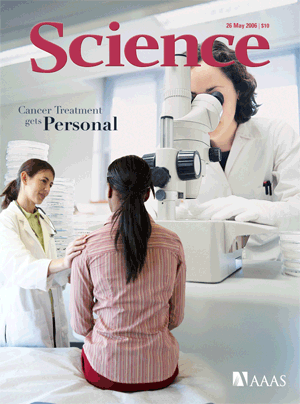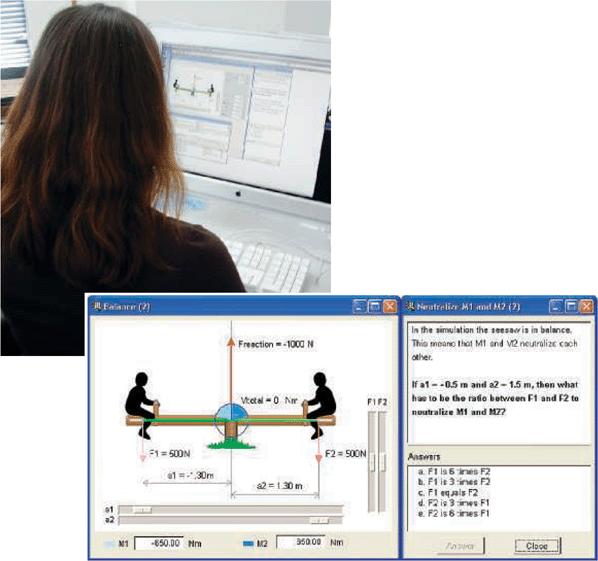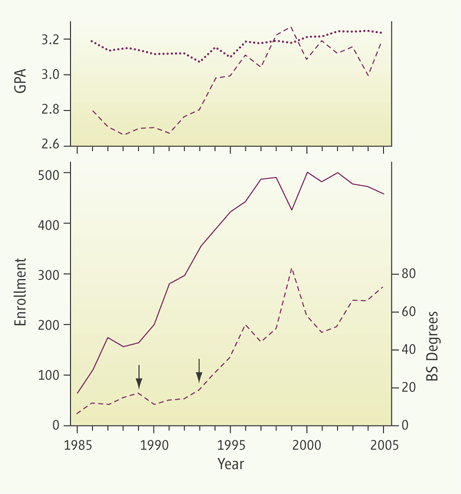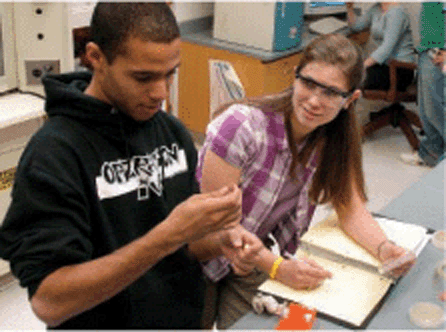Forums
Forums Results
Science's Education Forum provides a voice for the community interested in the multifaceted world of science education and the science of education.
Partnerships between graduate students and high school students in St. Louis benefit both groups, and bring real laboratory experiences to the high school students.
Boys and girls have similar psychological traits and cognitive abilities; thus, a focus on factors other than gender is needed to help girls persist in mathematical and scientific career tracks.
An analysis of students’ academic and social scores compares a Montessori school with other elementary school education programs.
Interactive visualizations combined with online inquiry and embedded assessments can deepen student understanding of complex ideas in science.
At the University of Colorado at Boulder, involving students in the transformation of science courses raises the visibility of science teaching as a career and produces K–12 teachers well-versed in science.
Faculty and students at the University of Washington forge interdisciplinary partnerships with the regional community to restore damaged habitats.
Young adolescents who expected to have a career in science were more likely to graduate from college with a science degree, emphasizing the importance of early encouragement.
Computer simulations enhance inquiry-based learning—in which students actively discover information—by allowing scientific discovery within a realistic setting.
An undergraduate program involving mentorship, summer and other workshops, and targeting high-achieving high school students improves participation of underrepresented minorities in science.
A supportive network of scientists and faculty brings sophisticated microarray experiments to the undergraduate lab and classroom.










